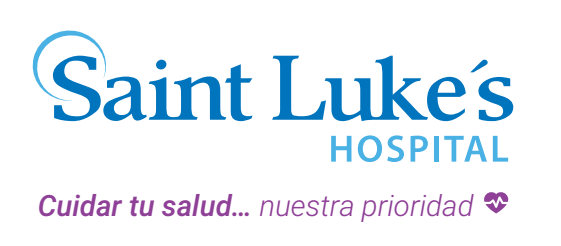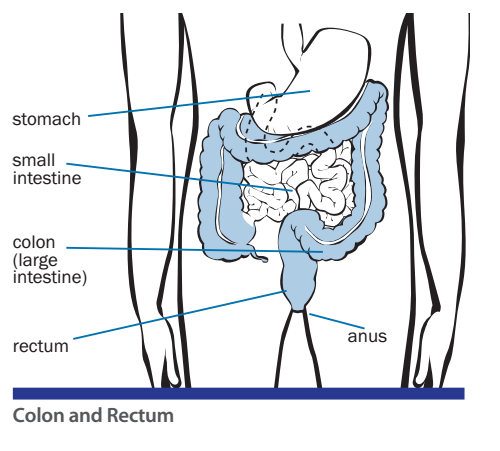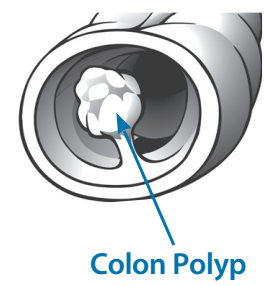
Emergencies 24 hrs.
+ 52 (624) 142 5911

Info@saintlukeshospitals.com
THE LEADING HOSPITAL GROUP FOR HEALTH CARE AND MEDICAL TOURISM IN LOS CABOS, MEXICO












COLON CANCER SCREENING TESTS


Colon Cancer Screening Saves Lives

Colon Cancer is the second leading
cancer killer – but it doesn’t need to be

Among cancers that affect both men and women, colon cancer (also known as colorectal cancer) is the second leading cancer killer in the United States. If everyone aged 50 years or older had regular screening tests, at least 60% of deaths from this cancer could be avoided.
Colorectal cancer is cancer that occurs in the colon or rectum. The colon is the large intestine or large bowel. The rectum is the passageway connecting the colon to the anus

If you are 50 or older, you should speak with your doctor about colon cancer screening. Screening can find colon cancer before symptoms develop, when it’s easier to treat and survival rates are better. Screening can help find growths called polyps that can be removed before they turn into cancer

• Colon cancer usually starts from polyps in the colon or rectum. A polyp is a growth that shouldn’t be there. Over time some polyps can turn into cancer.
• Screening tests can find polyps so they can be removed before they turn into cancer.
• Screening tests also can find colon cancer early, when the chance of being cured are good.
Colon cancer occurs most often in people aged 50 or older. The risk increases with age. Both men and women can get colon cancer. If you are 50 or older, talk to your health care provider about getting screened.
Your risk for colon cancer may be higher than average if:
• You have a presence of colon polyps.
• You or a close relative have had colorectal polyps or colorectal cancer
• You have inflammatory bowel disease
• You have a family history of inherited colorectal cancer or inherited colorectal symptoms.
• You smoke, are overweight, do not exercise, or eat a lot of red meat.
Speak with your health provider about having earlier or more frequent tests if you think you’re at high risk for colorectal cancer.
Several different screening tests may be used to find colon cancer early, when it’s more treatable. Medical specialists recommend colorectal cancer screening for men and women using one of the following methods: high-sensitivity fecal occult blood testing (FOBT), stool DNA testing, standard colonoscopy or virtual colonoscopy. You should talk with your health provider about which test is right for you.
Polyps and colorectal cancers can bleed, and FOBT checks for tiny amounts of blood in feces (stool) that cannot be seen. You receive a FOBT kit from your health care provider, and at home stool samples are collected by the patient using the kit, and the samples are returned to the doctor for evaluation. If FOBT is the only type of colorectal cancer screening test performed, yearly testing is recommended.
You collect an entire bowel movement and send this to a lab to be checked for cancer cells.
In this test, the rectum and entire colon are examined using a colonoscope, a flexible lighted tube with a lens for viewing and a tool for removing tissue. The tube is inserted through the anus into the rectum and the colon as air (or carbon dioxide) is pumped into the colon

Screening Saves Lives
to expand it so the doctor can see the colon lining more clearly. During colonoscopy, any abnormal growths in the colon and the rectum can be removed. The procedure typically lasts from 30 minutes to one hour A thorough cleansing of the entire colon is necessary before this test, and patients will receive some form of sedation. Colonoscopy is recommended every 10 years for people at average risk as long as their test results are negative.
Virtual Colonoscopy:This screening test, also called computed tomographic [CT] colonography uses a CT scanner to produce a series of pictures of the colon and the rectum from outside the body. A computer then assembles these pictures into detailed images that can show polyps and other abnormalities. Virtual colonoscopy is a newer method of screening the colon and is less invasive than standard colonoscopy and does not require sedation. The accuracy of virtual colonoscopy is similar to that of standard colonoscopy, and has a lower risk of complications. However, if polyps or other abnormal growths are found during a virtual colonoscopy, a standard colonoscopy is usually performed to remove them. With the combination of newer, and faster CT scanners with computer software that can produce images equivalent to an endoscope, virtual colonoscopy seems to be a logical choice in the screening for colon cancer.
Computed Tomography
Saint Luke’s Hospitals have recently installed the SOMATOM SCOPE, the latest and fastest CT scanner in Los Cabos, which is highly suitable for virtual colonoscopy screening.
The SOMATOM SCOPE delivers outstanding image quality, and is able to reduce radiation dose up to 40% while maintaining high levels of quality and diagnosis confidence. The scan time takes approximately 20 seconds, with very low radiation during which time the patient holds his or her breath. After the exam, there are two methods that can be used to deal with a polyp that has been identified by the CT scan. If the patient desires to have a same day standard colonoscopy when a polyp is identified, he or she waits for approximately 45 - 60 minutes in order to confirm if a polyp has been identified. This time is needed to carefully examine the colon using computer images. If a polyp is identified, the patient then has a standard colonoscopy performed to remove the polyp. If no polyp is found, the patient goes home.
Dr. Luis Enrique Sotelo is the leading gastroenterologist in Los Cabos, and resident specialist at Saint Luke’s Hospital. To learn more about colon cancer screening tests, arrange a consultation with Dr. Sotelo, who will review your present condition, and discuss the best options for you. The fecal occult blood tests (FOBT) normally costs $495 pesos, virtual colonoscopy $8190 pesos plus IVA ($455 US plus taxes), and a standard colonoscopy $10,350 pesos plus IVA ($575 US plus taxes). Contact Saint Luke’s for more details - there’s no better time to learn the facts about colon cancer and get tested.
During the colon cancer awareness month, patients who have the Virtual Colonoscopy screening tests, if requested, will be checked for the symptoms of prostate cancer and for diabetes at no extra charge.
Saint Luke’s Hospital are leaders in preventive medicine, and offer a wide variety of health check-up packages, including colon cancer screening tests, for a complete and accurate diagnosis of your health
Visit the hospital and discuss the te sts that are right for you
San José del Cabo
Calle Ignacio Zaragoza Downtown San José, B.C.S.
Cabo San Lucas
Fracc. 6, Lote 12. Av. Aguajitos, Cabo San Lucas, B.C.S
Emergency 24 / 7
52 (624)142.5911
52 (624)130.7911

Ask a Question
Get Information or a Quote on the service or medical procedure of interest to you.
Contact Us:
San José del Cabo B.C.S.
Calle Ignacio Zaragoza S/N, Col. Centro
+52 (624) 142 5911
Cabo San Lucas, B.C.S.
Calle Aguajitos Fracc. C Lote-12, Col. Arcos del Sol.
+52 (624) 143 0911
Saint Luke’s Hospitals ®
All Rights Reserved 2015




